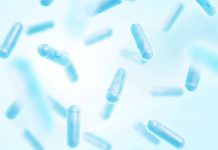
Inevitably our skin changes as we age. Our skin is also affected by our hormones, diet, stress level, and weather conditions. A good skin care regimen corresponds to changes in the weather. Sun protection is a priority during the summer. During winter months the cold temperatures, strong winds, and low humidity dry out our skin. Premature aging and dryness are promoted by low water intake, excessive caffeine, lack of sleep, insufficient exercise, and a diet low in antioxidants.
Skin is one of the body’s major elimination organs. Skin problems like acne, eczema, psoriasis, and rosacea often are a sign of toxicity and may be aggravated by allergies, stress, and diet. Any skin-care regime that includes nourishing and detoxifying ingredients like dietary antioxidants, fiber, water, and probiotics, in addition to lifestyle interventions like stress management and sleep, are far more valuable for managing skin problems than an expensive commercial product line. Here are a couple of common skin problems and suggestions for combating them.
Acne:
Acne compromises blackheads, whiteheads, cysts and/or nodules that appear on the face, neck, chest, back, shoulders and upper arms. While acne commonly affects teenagers and women during PMS or pregnancy, adults can get acne too. The location of acne may represent areas of internal toxicity. Acne in the T-zone areas (nose and forehead) may call for a liver cleanse. Begin your day with a glass of water and a generous squirt of fresh lemon juice as a great way to protect your liver and encourage healthy skin. Acne around the chin, chest or back may indicate constipation or other problems in the colon (such as yeast overgrowth). Acne along the cheekbones is a good indicator of allergies. Maintain a food journal to monitor which foods and ingredients produce redness or skin changes. Keep in mind that any detoxification approach may cause or worsen acne before it improves. Hang in there, it will be worth it.
Eczema & Psoriasis:
Eczema is a chronic inflammatory skin reaction typically characterized by dry, red, itchy patches of thickened skin which are often located on the front of the wrists, elbows, and the back of the knees. Eczema affects 2-7% of Americans of which two-thirds have a family history. There is ample evidence that eczema is, at least in part, an allergic reaction. Food allergies are a major cause of eczema with allergies to milk, eggs, and peanuts accounting for about 81% of childhood cases. Although flare-ups may occur under stress, weather changes, or allergen exposure, the inflammation may also indicate toxicity, often stemming from the colon. In cases of serious or chronic eczema, treatment with a topical cream is insufficient and any results are usually temporary. Embarking on a detoxification program to expel toxins and strengthen immunity is a better approach.
Psoriasis occurs in 2-4% of the population and is caused by a pileup of skin cells that have replicated too quickly. The characteristic red scaly patches may occur anywhere on the body, but most commonly appear on the scalp, back of the wrists, elbows, knees, ankles and buttocks. Though there is a strong genetic link, other factors which may underlie psoriasis include bowel toxicity, incomplete digestion of protein, and impaired liver function.
Allergy testing may help identify if something in your food or environment is causing eczema or psoriasis flare-ups.
Consider beginning with a colon cleanse to treat eczema or psoriasis. This might entail purchasing a product containing fiber and herbs that gently exfoliate the colon removing unwanted toxins. Instead, you may want to try colon hydrotherapy which is a fast, efficient way to clean out the gut. In any event, ensure your daily diet contains a minimum of 25 grams fiber and enough water to avoid constipation. Avoid sugar, soft drinks, alcohol, yeast (found in bread, wine, beer) coffee, spicy foods, and cheese (molds). These foods can aggravate eczema and psoriasis.
Here are some other tips and remedies for dry skin:
- Like every other part of the body, the skin requires nutrients, specifically omega- 3 and omega-6 fatty acids, vitamin C, vitamin A, beta carotene (the precursor to vitamin A), vitamin E, silica, selenium and zinc. Omega 3 fatty acids are anti-inflammatory, reduce skin irritation, and help hydrate skin cells.
- A low-fat diet may be aging you! Ensure that 20%-25% of your daily calories are derived from healthy fats, such as avocado, fish, and organic coconut oil.
- Coconut oil used as a lotion helps moisturize dry skin and prevents liver spots and other blemishes caused by aging and sun exposure.
- A vitamin A deficiency can contribute to dry, rough skin and causes hard ‘goose pimples’ around the elbows. Vitamin A occurs naturally in butter, fish, and colorful vegetables (vegetables contain the beta carotene form).
- Bathing in mineral salts, such as Epsom salts or Dead Sea salt preparations, kills bacteria and detoxifies by opening pores.
- Tar soap aka Pine tar added to soap is remarkably soothing to dry, itchy skin. Pine tar comes from the burning of pine tree sap. Although sticky and unpleasant smelling, it retains the natural oil of pine, is a strong anti-septic, and contains trace elements of sulfur and iodine from the burning process.
- Shea butter, well known as a moisturizer and emollient, is also an anti-inflammatory agent. It has been shown to effectively treat scars, eczema, burns, rashes, acne, severely dry skin, blemishes, dark spots, skin discolorations, chapped lips, stretch marks, wrinkles and irritated skin caused by psoriasis.
- Aloe Vera supports the formation of new skin cells and can be applied topically to treat dry skin, insect bites, acne, cuts, abrasions, and burns, including sunburns.
- Exercise promotes circulation and detoxification by sweating through the skin’s pores.
Just as toxins can exit the body easily through pores and sweat, up to 35% of products applied topically penetrate the skin, directly entering the bloodstream. Read labels carefully to avoid applying chemicals onto your skin. Watch out for mineral oil and petroleum-based skin care products (which are, unfortunately, the basic ingredients in many cosmetic products). These products lock moisture against the skin’s surface by blocking pores and preventing the skin from breathing and eliminating waste. If you have sensitive skin, shampoos, perfumes, and fabric softeners also contain petroleum-derived ingredients. Buy fragrance-free laundry detergents and use natural essential oils rather than perfumes.










